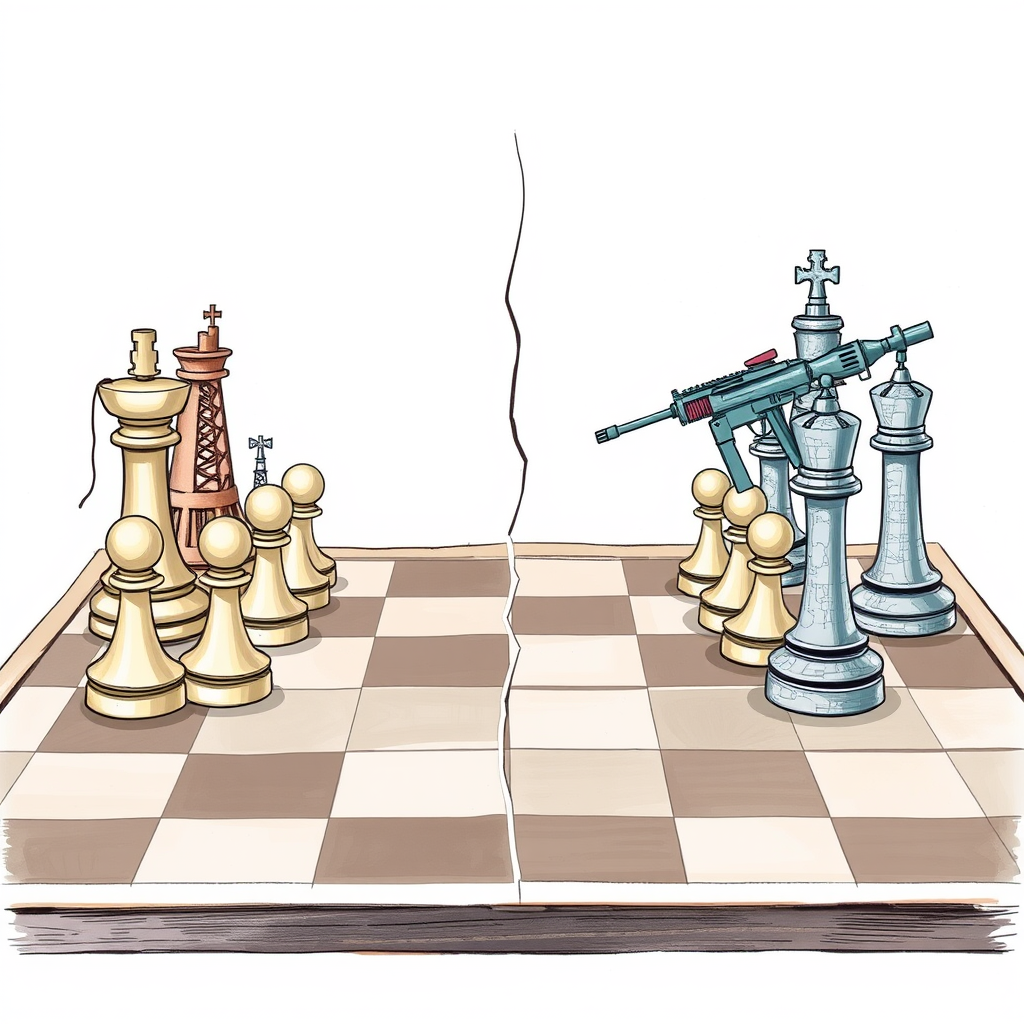Ukraine Deal May Finally Unite Republicans on Aid

A landmark agreement granting the U.S. a 50% stake in Ukraine’s future oil, gas, and mineral wealth appears to be easing internal divisions within the Republican Party regarding continued support for the war-torn nation. For over a year, Republicans have been fractured, with those aligned with Donald Trump expressing skepticism about further involvement, while national security advocates have pushed for sustained aid to counter Russian aggression. Several Republican members of Congress indicated to TIME that the deal offers a compromise, providing a rationale for continued support that can be framed either as a sound business investment or a moral imperative—or both.
Senator Roger Wicker (R-Kansas), Chairman of the Senate Armed Services Committee, hailed the agreement as a “game changer,” stating it was “a very bad day” for Vladimir Putin. Completed after months of negotiation, the deal will channel revenues from future Ukrainian energy and mineral projects – including vast reserves of lithium, titanium, and rare earth elements – into a joint U.S.-Ukraine investment fund. This fund will then be used to finance Ukrainian purchases of U.S. weapons systems. While requiring ratification by Ukraine’s parliament, the agreement seemingly defused weeks of tension between Trump’s inner circle and Ukrainian President Volodymyr Zelensky, following a reportedly heated exchange in the Oval Office.
The U.S. has already provided over $66 billion in military assistance to Ukraine since Russia’s full-scale invasion in 2022. Recently, Trump and some Republicans had been pressuring Ukraine to concede territory to Russia in exchange for a ceasefire, while simultaneously balking at further U.S. aid. However, continued Russian strikes on Kyiv during negotiations reportedly frustrated Trump and highlighted his limited influence over Putin.
The reaction to the deal has been mixed. While some see it as a pragmatic solution that aligns U.S. and Ukrainian interests, others express concern that it transforms foreign policy into a transactional arrangement. Senator Chuck Schumer (D-NY), the Senate Minority Leader, voiced worry that Trump might still succumb to Putin’s influence, emphasizing the need for concrete action beyond “elaborate dances.”
Some Democrats, like Senator Richard Blumenthal (D-CT), view the deal as largely symbolic, while others, such as Senator Chris Murphy (D-CT), are more critical, questioning its sincerity given Trump’s perceived inclination towards accommodating Russia. Concerns have been raised that the most resource-rich regions of Ukraine are those Trump officials have suggested Ukraine cede to Russia.
Ukrainian and American lawmakers are still scrutinizing the details of the investment fund. Experts like retired Rear Admiral Mark Montgomery suggest the arrangement, if successful, could deepen long-term U.S. integration with Ukraine’s future. He emphasizes that continued immediate support, including intelligence and specialized weaponry, remains crucial for Ukraine’s defense.
This deal, while complex and fraught with political implications, appears to be a calculated attempt to bridge the gap between competing interests within the Republican Party. Whether it represents a genuine shift towards sustained support for Ukraine or merely a temporary alignment of financial incentives remains to be seen. The arrangement feels less about altruism and more about securing access to valuable resources, potentially at the expense of broader geopolitical principles. It’s a pragmatic, if somewhat cynical, approach that prioritizes economic gain over unwavering support for a democratic ally. The long-term consequences of this transactional approach could significantly reshape the U.S.-Ukraine relationship and set a concerning precedent for future foreign policy engagements.